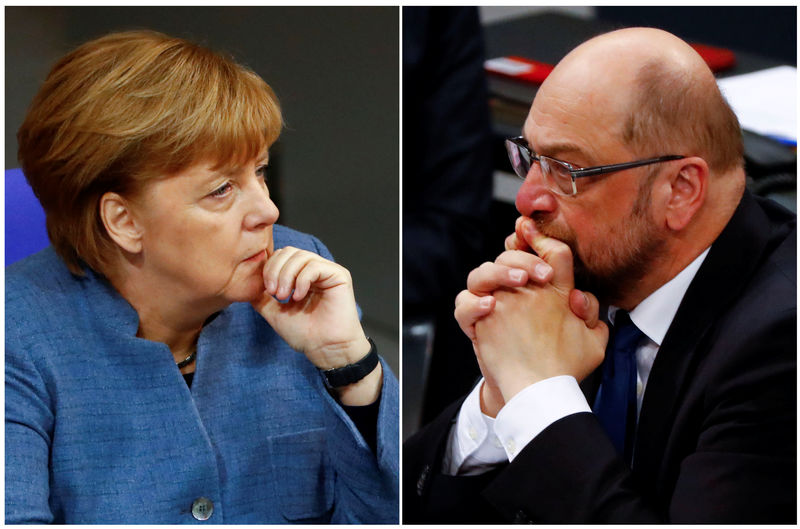BERLIN (Reuters) - Germany's center-left Social Democratic party (SPD) on Monday warned Chancellor Angela Merkel's conservatives that it would not win approval from its members for a new coalition government if it gave way on key election promises.
The SPD agreed only reluctantly to enter talks, after voters rewarded it in September for the last four years of "grand coalition" under Merkel by handing it its worst result since 1933.
SPD members will have the final say on any deal to renew the alliance with Merkel's Christian Democrats (CDU) and their Christian Social Union (CSU) Bavarian allies.
General Secretary Lars Klingbeil said they would demand distinctive leftist policies, along the lines of the single "citizen's insurance" that the SPD wants to replace Germany's private and public healthcare systems.
"The Union (CDU/CSU) knows that the SPD members have the final say ... and we need to be able to convince them on substance," Klingbeil told the public broadcaster ZDF.
The SPD, which shed support to the far right and to the hard-left Die Linke in the election, says the existing hybrid health insurance system discriminates against the poor.
Conservatives, including Merkel, say switching to a unified system would erode competition and worsen services.
SPD members gave leader Martin Schulz the green light at a party congress last week to launch talks with Merkel's conservatives, raising hopes of an end to months of political deadlock created by an inconclusive election result.
SPD and conservative negotiators will hold their first meeting on Wednesday.
FAMILY REUNION
Immigration is expected to be another key point of contention.
The SPD opposes a conservative plan to extend beyond March a temporary halt on the right of some accepted asylum seekers to bring in family members.
It says the measure hampers efforts to integrate the 1.6 million people who entered Germany seeking asylum in 2015 and 2016. "Integration works only with families," Klingbeil said.
Merkel's CDU hold a meeting on Monday to discuss the looming coalition talks, which also face a threat from strains within Merkel's conservative bloc.
The CSU, which fears losses to the far-right Alternative for Germany (AfD) in an election in Bavaria next year, is likely to put up more resistance to SPD policy demands than the CDU, notably on immigration.

"After a result of 20.5 percent, you simply cannot continue on the same path, and many issues have to be solved," SPD deputy leader Ralf Stegner told Bayern 2 radio. "It is not certain this will work with the Union, where the CDU and CSU are quarrelling."